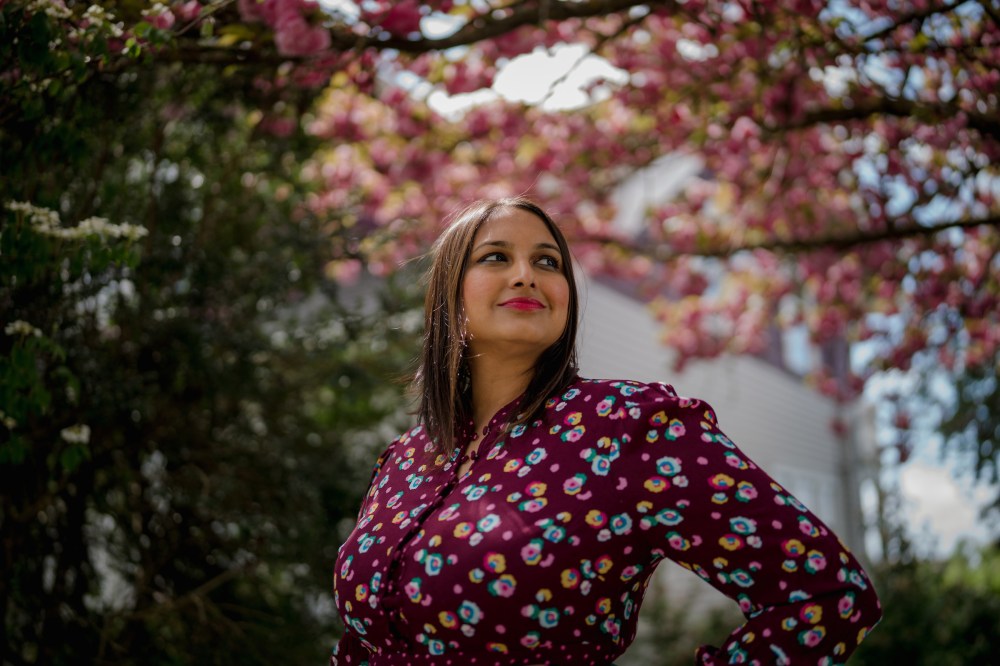My first and last names have been mispronounced my whole life. By friends, work colleagues, and even emcees announcing me as an event’s keynote speaker to rooms of thousands. I entered my own book launch event with a huge sign outside that had both my names misspelled.

As someone of Indian-Singaporean descent and a semi-public figure, any time I’ve introduced myself to a Western audience, I’ve cringed. I know that mispronunciation and awkwardness are par for the course.
I can imagine, with all of my being, what it must be like for Vice President Kamala Harris — the presumptive Democratic presidential nominee — whose name has been deliberately mispronounced by her opponents in an effort to denigrate her candidacy.
And now, just to make things more complicated, I’ve decided to publicly change my last name.
I’ve made a career of creating a sense of belonging through intention, stories and action. But I’ve been hiding a secret: my last name hasn’t provided me with a sense of familial or social foundation for a long time.
In a world that doesn’t easily allow women, women of color, and those who are not public figures to change our minds, I am doing what I have said I’d never do as a feminist.
I’m changing my last name to “Malhotra” to match that of my husband and my son.
The reasons are complicated, and some of them I’m choosing to keep private. “Tulshyan” doesn’t resonate with me because it reminds me of the fraud and deceit of the man I inherited it from — my estranged father.
I didn’t make this decision lightly.
Here’s what one executive learned when she chose inclusion over pay
Like many professional, straight women who marry or who have become estranged from one or all members of their family of origin, I’ve wrung my hands thinking through the feminist implications of changing my name after establishing a public identity.
After years of agonizing about how to distance myself from a name that’s never quite fit — literally as podcast, upon article, upon blog post published with that very last name — the decision became crystal clear as I finished the last chapter of my next book, “Uncompete: Dismantling a Competition Mindset to Unlock Liberation, Opportunity, and Peace.”
In it, I write: “In order to create a world that’s better than we found it, our decisions must be guided by the legacy we want to leave. As Jonas Salk reminds us to ask: ‘Are we being good ancestors?’”

The good ancestor I’m striving to be for my 8-year-old son makes it urgent that we have the same last name. Simultaneously, I am grieving leaving my old name behind because of the bond of love I do have with the people who I once shared it with: my mother and siblings.
I’ve also been reflecting on Kamala Harris, whose first name — an Indian one that means lotus — has been deliberately mispronounced time and time again, including by her colleagues at the Republican National Convention two weeks ago.
Linguistics professor Darin Flynn writes that conservative media personality Tucker Carlson’s mispronunciation of Kamala is “a textbook example of a linguistic process called ‘hyperforeignization,’ where speakers go out of their way to refit foreign-looking words with pseudo-foreign speech sounds and sound patterns.”
Of course, I know this too well, having experienced it firsthand in every school, college, workplace and social setting I’ve been in.
I’m Black and Asian. Trump’s attack on Kamala Harris was an attack on me.
As a former journalist and the author of two books with a third on the way, my name is more Google-able than average and harder to pronounce than average.
Despite the accomplishments tied to it, I am changing it because I deserve a name that feels authentic to who I am and who I want to be, regardless of who it may inconvenience.
Names can help us stand out. They can help us fit in. Mine have only done the former, and just as people started to recognize my name, I’m changing it.
Our surnames often tell the world about our identity, offering clues about who we are, where we are from, our cultural background, and our family lineage. Our names reveal where we are in the human tapestry of race, ethnicity, class, gender, and — for better or worse — our families.
I’ve talked about how pronouncing names correctly is a key foundation to being inclusive and anti-racist. The most commented section of a course I teach about inclusion is one where I talk openly about the shame I felt growing up with an unusual name and the path to reclaiming it. In short: I know that names really, really, really matter.












